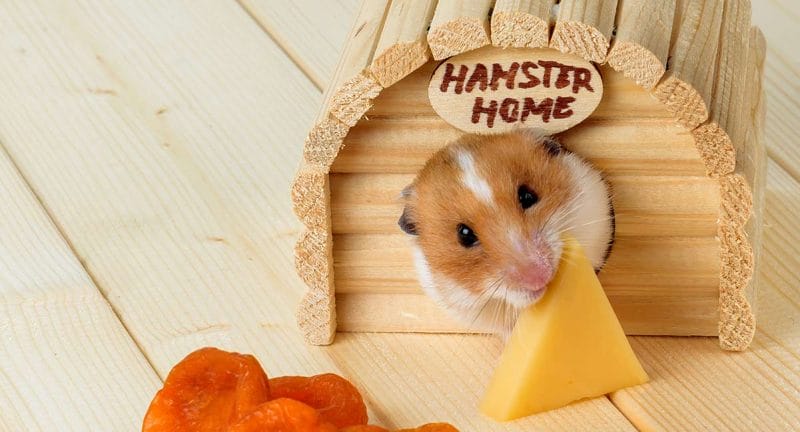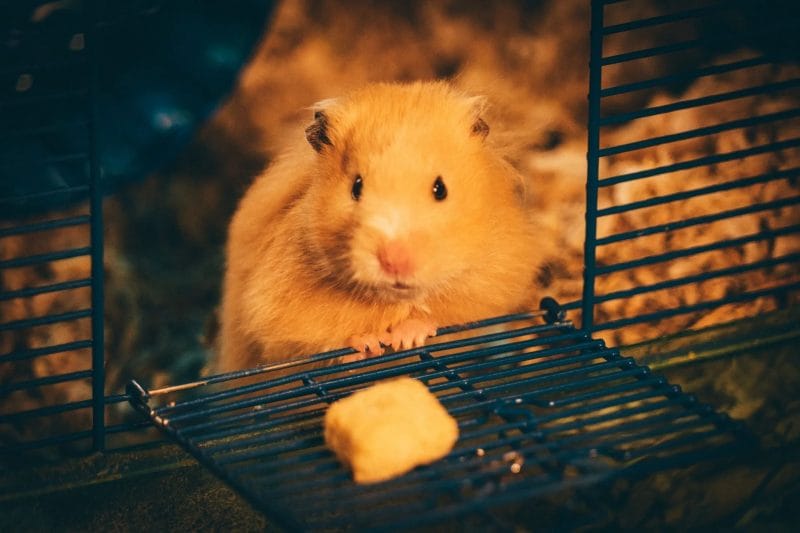Can Hamsters Eat Cheese? Cheese is a beloved dairy product enjoyed by people worldwide. It’s made from milk through a complex process that involves coagulation, fermentation, and aging. The nutritional composition of cheese includes essential nutrients like protein, fat, calcium, and vitamins.
Can hamsters eat cheese?
Can hamsters eat cheese? Yes, they can, but it should be offered in moderation. Hamsters are omnivores, and cheese can provide them with some nutritional benefits when given sparingly. However, it’s important to be cautious about the quantity and type of cheese you offer to your furry friend.

Hamsters can eat cheese in moderation because it contains protein and fat, which are essential components of their diet. These nutrients help maintain their energy levels and support overall health. Additionally, the calcium in cheese can contribute to strong bones and teeth in hamsters.
Benefits of feeding cheese to hamster
Can Hamsters Eat Cheese? Feeding cheese to your hamster in moderation can offer several benefits. Some of these include:
- Protein Source: Cheese is a good source of protein, which is crucial for hamsters’ growth and muscle development.
- Calcium Boost: The calcium content in cheese can promote healthy bone and dental health in hamsters.
- Variety in Diet: Offering cheese as an occasional treat can add variety to your hamster’s diet and keep them interested in their food.
- Mental Stimulation: Chewing on small cheese portions can provide mental stimulation and help keep your hamster’s teeth healthy.
- Source of Healthy Fats: Hamsters need some fat in their diet for energy, and cheese provides a source of healthy fats.
Can Hamsters Eat Cheese? Nutrients and vitamins found in cheese that are beneficial for hamsters include protein, calcium, vitamin A, and vitamin B12.
Risk of feeding cheese to hamster
Can Hamsters Eat Cheese? While cheese can be a nutritious addition to your hamster’s diet when given in moderation, there are also some risks associated with it:
- High Fat Content: Cheese is relatively high in fat, so excessive consumption can lead to weight gain and obesity in hamsters.
- Digestive Issues: Some hamsters may have difficulty digesting dairy products, which can lead to digestive problems like diarrhea.
- Lactose Intolerance: Hamsters, like many other small mammals, can be lactose intolerant. Lactose in cheese can cause gastrointestinal discomfort in these hamsters.
- Dental Concerns: Cheese can stick to your hamster’s teeth, potentially leading to dental issues if not properly cleaned.
Can Hamsters Eat Cheese? If hamsters eat too much cheese, they may experience digestive upset, diarrhea, or obesity. It’s essential to offer cheese as an occasional treat rather than a regular part of their diet.

Symptoms of Cheese Poisoning in Hamsters
Can Hamsters Eat Cheese? Potential symptoms of cheese poisoning in hamsters include diarrhea, bloating, lethargy, and gastrointestinal discomfort. If you suspect your hamster has consumed too much cheese or is experiencing any of these symptoms, consult a veterinarian immediately.
How much cheese can you give a hamster?
Can Hamsters Eat Cheese? The amount of cheese you can give your hamster should be limited. A small piece, about the size of a pea, once a week is generally a safe serving size. This ensures they enjoy the benefits of cheese without the associated risks.
It’s crucial to monitor your hamster’s response to cheese. If you notice any adverse effects, reduce the amount or frequency of cheese in their diet.
Alternatives and Supplements
Cheese Alternatives for Hamsters:
- Yogurt Drops: These are small, yogurt-based treats that provide calcium and probiotics for digestive health.
- Cottage Cheese: A lower-fat dairy option that offers protein and calcium without the high fat content of regular cheese.
- Tofu: A non-dairy, protein-rich option that can be given in small amounts as a treat.
- Hard-Boiled Egg: A source of protein, vitamin D, and essential amino acids.
- Pumpkin Seeds: These seeds are high in fiber, vitamins, and minerals, offering a crunchy and nutritious snack.

Iconic Examples of Hamster Food:
- Hamster Pellets: High-quality hamster pellets are specially formulated to provide balanced nutrition, including essential vitamins and minerals.
- Fresh Vegetables: Offer small amounts of fresh vegetables like carrots, cucumbers, and bell peppers as occasional treats to add variety to their diet.
- Timothy Hay: Timothy hay is crucial for hamsters’ dental health and provides dietary fiber for proper digestion.
Can Hamsters Eat Cheese?
Yes, hamsters can have cheese in moderation.
Should I have a consultation with a vet before feeding cheese to my hamster?
While it’s not always necessary, consulting with a vet about your hamster’s diet is a good practice, especially if you have concerns about allergies or digestive issues.
What are symptoms of cheese poisoning in hamsters?
Symptoms may include diarrhea, bloating, lethargy, and gastrointestinal discomfort.
How to introduce cheese to hamsters?
Start with a small, pea-sized piece once a week and monitor your hamster’s reaction. Adjust the quantity based on their tolerance and preferences.
In conclusion, hamsters can enjoy cheese in moderation, reaping some nutritional benefits while avoiding potential risks. Always prioritize a balanced and varied diet for your hamster, and consult a veterinarian if you have concerns about their dietary needs or any adverse reactions to specific foods. Remember that individual hamsters may have varying tolerances to certain foods, so pay attention to their unique preferences and health.
If you take the time to educate yourself about hamster care and respect your pet’s personal space while also giving it adequate hamster breed, hamster food, exercise, and entertainment, as well as maintaining a clean environment and good health, you and your hamster should enjoy a long and happy life together. Visit our site http://hamstercare.net/
